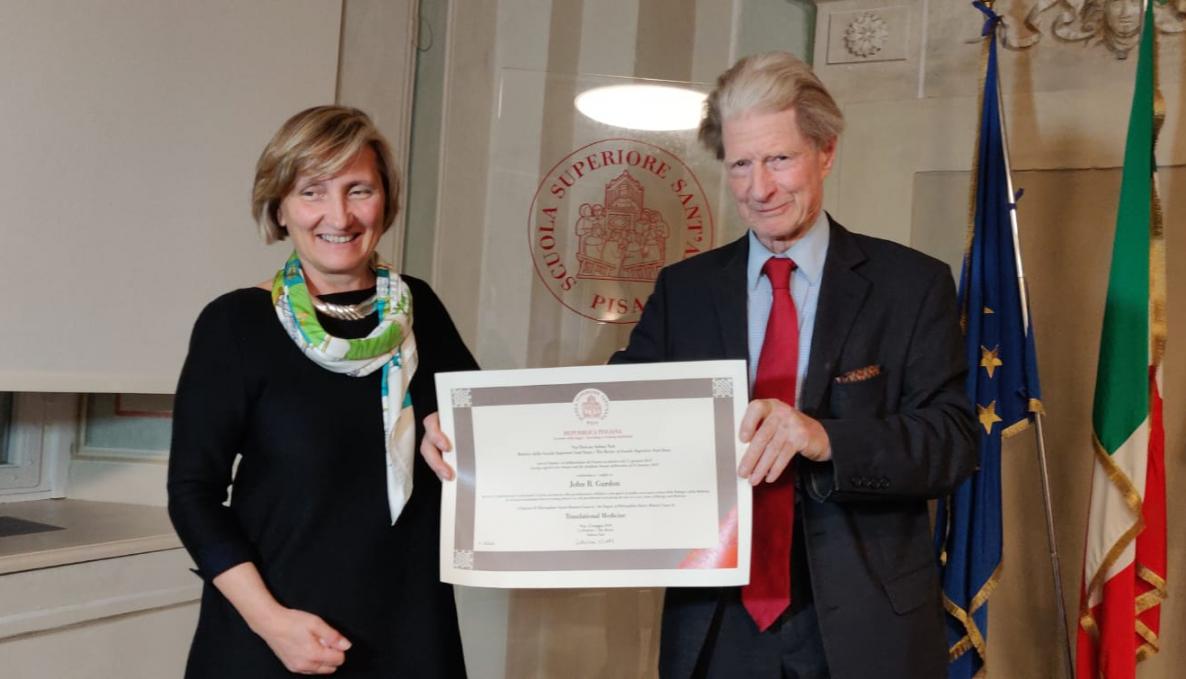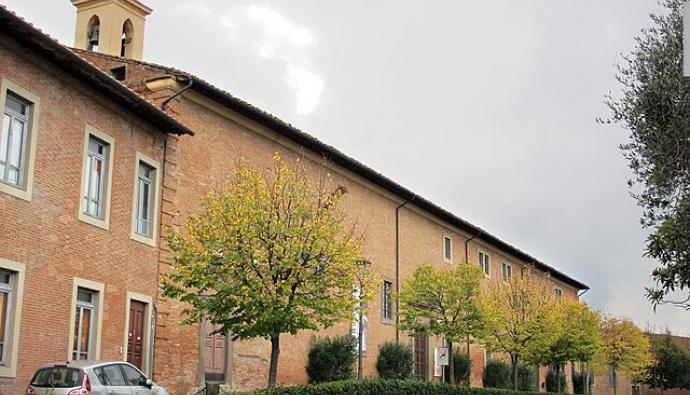honorary doctorate IN TRANSLATIONAL MEDICINE upon NOBEL laureate professor sir JOHN B. GURDON: “human cloning? it is technically feasible but unnecessary”. sant’anna school rector sabina nuti celebrates his outstanding achievements

Attending the conferment ceremony at Sant’Anna School Nobel Laureate Professor Sir John B. Gurdon said, “Human Cloning is technically feasible but completely unnecessary”. In 2012, the Nobel Prize Committee awarded Gurdon its prize in physiology/medicine for his work on cloning and pluripotent stem cells. Gurdon's research focused on the mechanisms by which the egg reprograms the transplanted nucleus. Gurdon isolated the nucleus from the skin cell of a frog then he took the egg of another frog and inactivated its cell nucleus. The egg was fertilized in the lab by inserting the skin DNA of the first frog and directing the formation of an entire functional organism. The undifferentiated cells had the potential to develop into many different cell types.
Although some genetic techniques are helpful for treating and curing diseases, human cloning is not one of them. “It would not be useful for a human individual to be cloned. A human clone would not be the genetic identical twin because you cannot clone a person’s brain or mind- added Sir John B. Gurdon – and there are many obstacles and drawbacks, at the present state of knowledge. Nevertheless, adult cells can turn into stem cells. Reprogramming adult cells can increase the quantity and the safety of these induced pluripotent cells before their use in clinical trials. Stem cell-based therapies can provide personalized treatments for chronic and degenerative diseases caused by an altered gene”.
Nobel Laureate Professor Sir John Gurdon attended the Sant’Anna School “Orizzonti in Medicina e Biologia” seminar series held on May 13, under the scientific supervision of Professor of Anaesthesiology Vincenzo Lionetti. On the same day, Sir John B. Gurdon received the Doctorate Degree Honoris Causa in Translational Medicine.
“Today, it is my distinct privilege to confer the Honorary Doctorate upon Nobel Laureate Professor Sir John Gurdon. It is indeed a great honour that this conferment ceremony coincided with the beginning of my appointment as the new Rector of Sant’Anna School – said Sabina Nuti. It is important to celebrate Professor John B. Gurdon’s contribution to science and its impact on medical research. Professor Gurdon is a great source of inspiration for us and we truly admire his outstanding achievements”.
Cover Photo: Nobel Laureate Professor Sir John B. Gurdon



